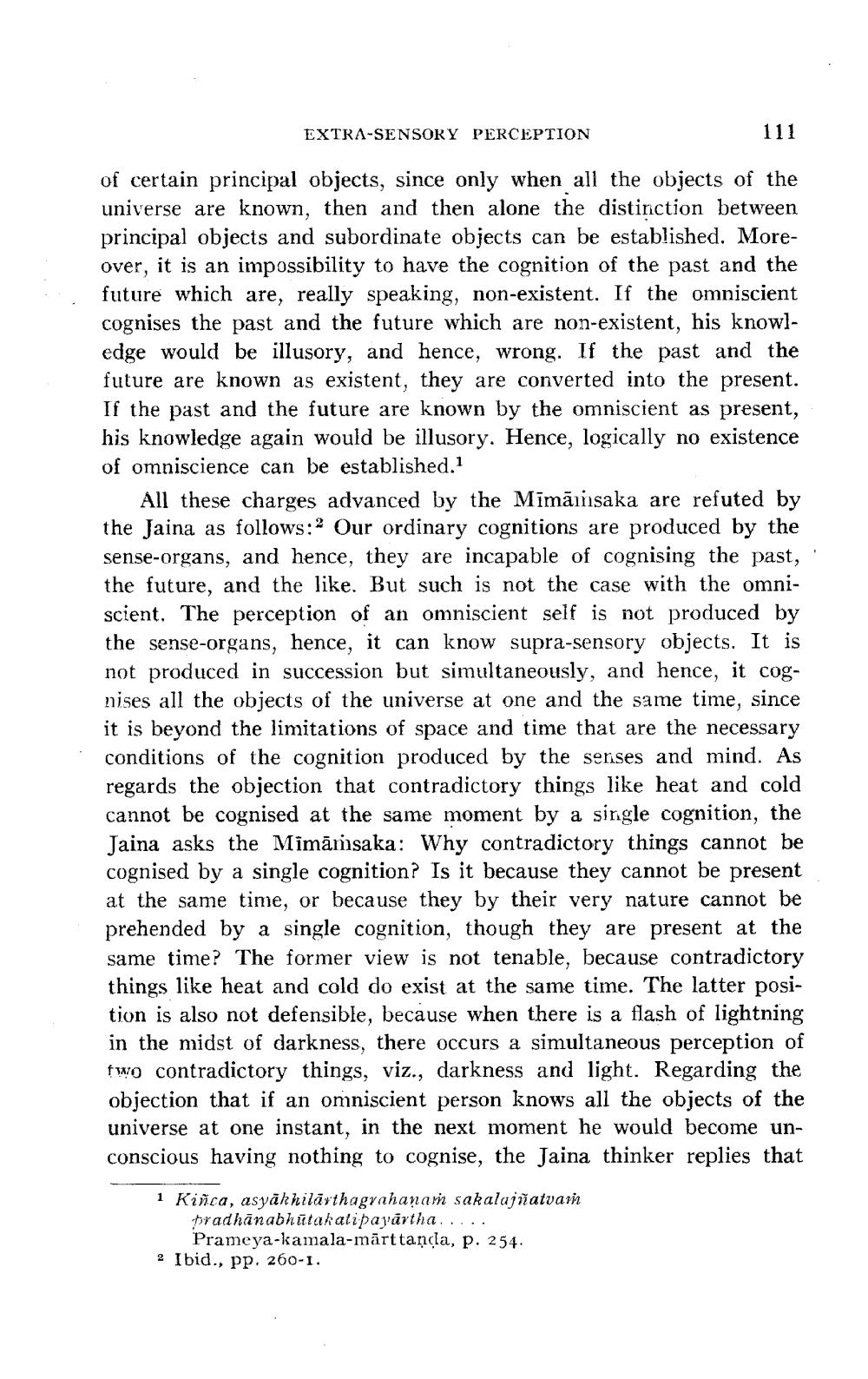________________
EXTRA-SENSORY PERCEPTION
111
of certain principal objects, since only when all the objects of the universe are known, then and then alone the distinction between principal objects and subordinate objects can be established. Moreover, it is an impossibility to have the cognition of the past and the future which are, really speaking, non-existent. If the omniscient cognises the past and the future which are non-existent, his knowledge would be illusory, and hence, wrong. If the past and the future are known as existent, they are converted into the present. If the past and the future are known by the omniscient as present, his knowledge again would be illusory. Hence, logically no existence of omniscience can be established."
All these charges advanced by the Mīmāsaka are refuted by the Jaina as follows:- Our ordinary cognitions are produced by the sense-organs, and hence, they are incapable of cognising the past, the future, and the like. But such is not the case with the omniscient. The perception of an omniscient self is not produced by the sense-organs, hence, it can know supra-sensory objects. It is not produced in succession but simultaneously, and hence, it cognises all the objects of the universe at one and the same time, since it is beyond the limitations of space and time that are the necessary conditions of the cognition produced by the senses and mind. As regards the objection that contradictory things like heat and cold cannot be cognised at the same moment by a single cognition, the Jaina asks the Mimānisaka: Why contradictory things cannot be cognised by a single cognition? Is it because they cannot be present at the same time, or because they by their very nature cannot be prehended by a single cognition, though they are present at the same time? The former view is not tenable, because contradictory things like heat and cold do exist at the same time. The latter position is also not defensible, because when there is a flash of lightning in the midst of darkness, there occurs a simultaneous perception of two contradictory things, viz., darkness and light. Regarding the objection that if an omniscient person knows all the objects of the universe at one instant, in the next moment he would become unconscious having nothing to cognise, the Jaina thinker replies that
1 Kinca, asyākhilarthagrahanan sakalajñatvam
pradhanabhūtakalipayārtha....
Prameya-kamala-mārttança, p. 254. 2 Ibid., pp. 260-1.




